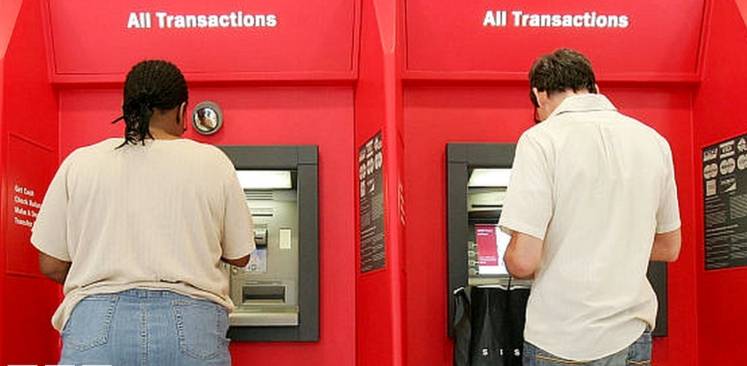
Could a potential default on US debt lead to global chaos?
The US government is currently involved in a high-stakes game that could have significant financial consequences.
If Democrats and Republicans fail to reach an agreement to raise the debt ceiling, the United States, with its $31.4 trillion (£25tn) debt, could potentially default on its financial obligations.
An agreement must be reached by the approaching deadline of 1 June, often referred to as the “X-date.” However, if an agreement is not reached, the implications for other countries and individuals like yourself could be significant.
The economy will slow
While it is important to note that experts interviewed by the BBC do not anticipate a US debt default, it is worth considering the potential ramifications if such an event were to occur. Simon French, the chief economist at investment bank Panmure Gordon, warns that a US debt default would have far-reaching consequences, suggesting that it could dwarf the magnitude of the global financial crisis experienced in 2008, which nearly led to the collapse of the world’s banking industry.
The government would be unable to borrow additional funds, leading to a rapid depletion of resources to fulfill its commitments, including public benefits and other obligations. This would result in the discontinuation of welfare payments and support to individuals, adversely impacting their ability to meet financial obligations and contribute to economic activity. Russ Mould, the investment director at AJ Bell, emphasizes that such a scenario would have a detrimental effect on the economy as a whole.
According to the White House Council of Economic Advisers, in the event of a prolonged failure to reach a debt ceiling agreement, the economy could contract by up to 6.1%. Economist Mohamed El-Erian, who serves as the president of Queens’ College at Cambridge University, suggests that a default would likely push the US into a recession. The potential consequences of a default on the US economy are significant, with both government estimates and expert opinions highlighting the severe impact it could have.
The ripple effects of a US default would be significant for the rest of the world, especially for countries that rely on the US as a major trading partner. As one of the largest global trading partners, a decrease in US purchasing power would result in reduced demand for products from other countries. This would have implications for international trade and could disrupt supply chains, impacting economies worldwide. The interconnectedness of the global economy means that any disruptions in the US economy would have far-reaching consequences for trading partners around the world.
Mortgages rates may rise
In the case of a US default, the perceived increase in risk associated with lending to the US government would lead to a rise in interest rates on Treasury bonds. Since Treasury bonds are considered a benchmark for global interest rates, an increase in US rates would have a spillover effect on other countries’ borrowing costs. This means that mortgages and other forms of borrowing in other countries, which are often influenced by global interest rates, would also become more expensive. The interconnectedness of global financial markets means that disruptions in one major economy, such as the US, can have widespread repercussions on borrowing costs and financial conditions worldwide.
If the US government defaults on its debt, it would create a significant loss of confidence among global investors. This loss of confidence would raise concerns about the creditworthiness of other countries, including the UK, leading to increased risk perceptions. As a result, investors would demand higher interest rates to compensate for the perceived risk when purchasing government debt. This increase in interest rates would not only affect government borrowing costs but also have a ripple effect on other forms of borrowing, such as mortgages and corporate loans. As borrowing costs rise across the board, it would become more expensive for governments, businesses, and individuals to borrow money. This would have a dampening effect on economic activity and potentially lead to reduced investment, lower consumer spending, and slower economic growth.
According to Andrew Hunter, deputy chief US economist at Capital Economics, US government debt holds a crucial position in the global financial system. It is widely regarded as one of the safest assets, and the pricing of numerous other financial assets around the world is influenced by US government debt. The positive aspect is that no specific country would be uniquely vulnerable in the event of a US default. However, the unfortunate reality is that a US default would have the potential to create a catastrophic situation for the global economy as a whole. The interconnectedness and reliance on US government debt make the repercussions far-reaching and severe, affecting financial markets, investor confidence, and economic stability worldwide.
Prices could go up
The US dollar holds the status of being the world’s reserve currency, which entails that numerous vital commodities, including oil and wheat, are priced in dollars. If the US government defaults on its debt, there is an expectation of a significant decline in the value of the dollar. While this might seem advantageous for individuals outside of the US, it would create uncertainty for investors in commodities. The pricing of various goods would become uncertain, leading to panic among investors who would question the possibility of defaults in other countries such as Japan, the UK, or Germany. The fear of a domino effect of defaults would disrupt financial markets and amplify global economic instability.
“When we have to readjust prices, it introduces an economic risk premium. This means that prices will increase, resulting in higher costs for essentials like bread,” explains Mr. French.
If food and fuel prices rise, it would have a direct impact on the cost of living for millions of individuals, making it more expensive to meet basic needs. This would put a strain on households and potentially lead to financial hardships for many.
Your pension could suffer
According to Mr. Mould, the US represents a significant portion, around 60%, of the global stock market value. This means that individuals likely have exposure to American shares in their pension funds, even if they are unaware of it. In the event of a US default, stock markets are expected to react negatively. However, there is still some room for optimism.
Back in 2011, Democrats and Republicans were deadlocked over the debt ceiling, risking a potential default. This uncertainty caused a sharp decline in US stock markets. However, the scare turned out to be short-lived, and the stock market managed to recover from the initial drop.
Mr. Mould believes that a similar scenario is likely to occur this time as well. While individuals currently receiving pensions may be affected, he explains that those who will be drawing pensions in the future have the advantage of time to recover from any deficits and regain their financial stability.

